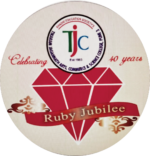Course Outcome
B.A.(History)
SEMESTER-I, History: Early India -Prehistory to the Mauryan Age (Sub Code: 11171) [2019-2023]
CO1: Gain an understanding of the salient features of the Prehistoric era in India and Ancient Indian History.
CO2: Comprehend key concepts related to Ancient India.
CO3: Develop an interest in studying historical maps, engaging with discourses, and exploring ancient Indian debates from the ancient period.
CO4: Foster an interest in interpreting the present by visiting and exploring historical sites relevant to ancient India such as such as caves,
temples, and ancient art and architecture.
.
SEMESTER-II, History: Early India – From the Post-Mauryan Era to the Rashtrakutas (Semester II), Course Code: 11172 [2019-2023]
CO1: To explore the historical processes behind the rise, development, and decline of the major dynasties in ancient India.
CO2: To examine the impact of foreign invasions on India and how these invaders integrated into Indian society.
CO3: To analyze the internal power struggles within Indian regimes.
CO4: To study the socio-economic and cultural transformations in ancient India.
NEP 2020 [2024-25] SEMESTER-I, NEP-2020, HIS -101- MJ, Indian National Movement (1857-1920) Theory and Practical
Theory:
CO1: Students can criticize thematic issues about the Indian national movement.
CO2: Students will get adequate knowledge of India’s struggle for Independence.
CO3: After the course study, the students will be sensitized to the complex process through which modern politics was introduced in India.
CO4: A study of the movement will therefore enable us to appreciate the complex nature of the process of modernity.
Practical:
CO1: Students will Understand the process of Nation Building
CO2: Develop their broad views about great personalities achievements and sacrifices
CO3: Analyze the work and thoughts of significant personalities
CO4: They understand "Modernity".
Semester III: CC-1(3), History of the Marathas (1630-1707)
CO1: Develop the ability to analyze and interpret sources related to Maratha history.
CO2: Understand the significance of regional history and the political foundations of the Maratha region.
CO3: Gain insights into 17th-century Maharashtra and India within the context of Maratha history.
CO4: Appreciate the leadership qualities and administrative system of the Marathas.
Semester IV, Core Course-I (CC-2C) History of the Marathas: (1707-1818) – 3 Credits
CO1: Analyze the Marathas' policy of expansionism and its consequences.
CO2: Understand the role played by the Marathas in 18th-century India.
CO3: Become acquainted with the art of diplomacy in the Deccan region.
CO4: Enhance knowledge of the administrative skills and depth of diplomacy practiced by the Marathas.
Semester V, Course Code: CC-3(3), Indian National Movement (1885-1947)
CO1: To cultivate a comprehensive understanding of Modern India.
CO2: To foster a spirit of healthy nationalism, democratic values, and secularism among students.
CO3: To gain insights into various aspects of the Indian Independence Movement and the formation of Modern India.
Semester VI, Course Code: CC-4(3), India After Independence (1947-1991)
CO1: To cultivate a comprehensive understanding of contemporary India.
CO2: To foster a spirit of healthy nationalism, democratic values, and secularism among students.
CO3: To gain insights into the domestic and foreign policies that shaped post-independence India.
